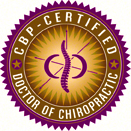Think Zinc and D3 for the Cold and Flu
 Sunday, April 1, 2012 at 2:59PM
Sunday, April 1, 2012 at 2:59PM The cold and flu ‘season’ is coming to an end—nearly over so to speak—as spring is here. Of course, there is really no season for these virus strains as most recent research shows that the spikes found in wintertime incidence and prevalence of these two illnesses is largely dependent on shorter days with reduced sunlight hours and colder weather; both of which impact the amount of direct skin to sunlight exposure time of human populations. Problematically, the common cold and flu are two of the most widespread illnesses our societal populations face today and are among the leading causes of visits to physicians and loss time from work and school.
During this ‘seasonal’ time of year, the pro-flu-shot-vaccination campaign increases in its aggressiveness and intensity. Some of the recent strategies can be found popping up on bill boards across the US where the marketing campaigns target human social and emotional behaviors. The taglines read:
- · The flu ruins date night…
- · The flu ruins birthdays…
- · Etc…
- Lack of good Evidence for Vaccination
Of interest, in 2010, a Cochrane1 analysis was published assessing the available literature evaluating the effectiveness of the flu vaccine for influenza in adults. They included 50 studies, with 40 clinical trials assessing over 70,000 subjects. The results were enlightening:
- The flu vaccine was found to be a poor match (approx. 1%) to the actual viral strain(s) affecting the population during that specific year.
- The flu vaccine had only a modest effect on reducing time off work in adults and had no effect on hospitalization or actual complication rates (pneumonia, transmission to others, etc.).
- Importantly, the inactivated vaccines caused ‘local harms and an estimated 1.6 additional cases of Guillain-Barre Syndrome’ per million vaccinations’.1
- Natural alternatives for Innate Immunity
In addition to providing Chiropractic adjustments and spinal rehabilitation interventions, conservative care (health/wellness) based Chiropractors have generally advised their patient populations on nutra-ceuticals to enhance innate immunity for protection against the cold and flu viruses. Here’s a brief review of recent research on two of the main nutritional supplements Chiropractors should and do recommend for enhanced immunity.
- · Zinc-
A recent, 2011 systematic review by Singh et al2, presented information based on the available randomized, double-blind, placebo-controlled trials using zinc for at least five consecutive days to treat, or for at least five months to prevent the common cold. They identified 15 studies that met their inclusion criteria: 13 therapeutic trials (with a total of 966 total subjects) and 2 preventive trials (with 394 total subjects). This review identified that intake of zinc was associated with a statistically significant reduction in the duration (p = 0.001) and the severity of the common cold symptoms (p =0.04). Additionally it was revealed that:
- · There was a significant difference between the zinc and control group
for the proportion of participants symptomatic after seven days of treatment; - ·
- ·
- ·
Note that the adverse events from zinc supplementation seem a heck of allot better than the ones from vaccination! Also, not all zinc is the same, some studies show conflicting evidence due to a reduced bioavailability of zinc from specific formulations.
- Vitamin D
Vitamin D is fast becoming, if not already, the ‘Vitamin C’ of the current generation. It is a known fact that Vitamin D levels in the human body have an inverse trend to the cold and flu virus incidence and prevalence. It is currently accepted that vitamin D supplementation reduces the incidence of viral respiratory infections in children and adults.3 Recent evidence has been found that vitamin D has anti-viral and anti-microbial roles in the immune regulating system.4 One of the more compelling pieces of evidence for vitamin D’s role in protection against the flu comes from the 2010 randomized, double-blind, placebo-controlled trial by Urashima and colleagues.5 They5 found that vitamin D(3) supplementation during the winter months reduces the incidence of influenza A:
Summary
Let’s face it, we’re all going to get run down, stressed out, and sick from time to time. Instead of running to the local cold and flu needle sticking shop, why not supplement with appropriate nutra-ceuticals to aid in the prevention of and lessening the severity/duration of the cold and flu. It appears to be just as effective, if not more, and safer to think zinc and vitamin D
References
 CBP Seminars | Comments Off |
CBP Seminars | Comments Off |  Chiropractic BioPhysics,
Chiropractic BioPhysics,  zinc
zinc 

